Experience Remission from Depression, with TMS.
TMS (transcranial magnetic stimulation) is designed to help people who suffer most from depression to start feeling better again.
4.8 Million Treatments Administered
83% of Patients See Improvement
62% of Patients See Full Remission
What is TMS?
Transcranial Magnetic Stimulation uses strong, magnetic pulses distributed through a coil to regulate the neural activity of brain structures associated with depression.
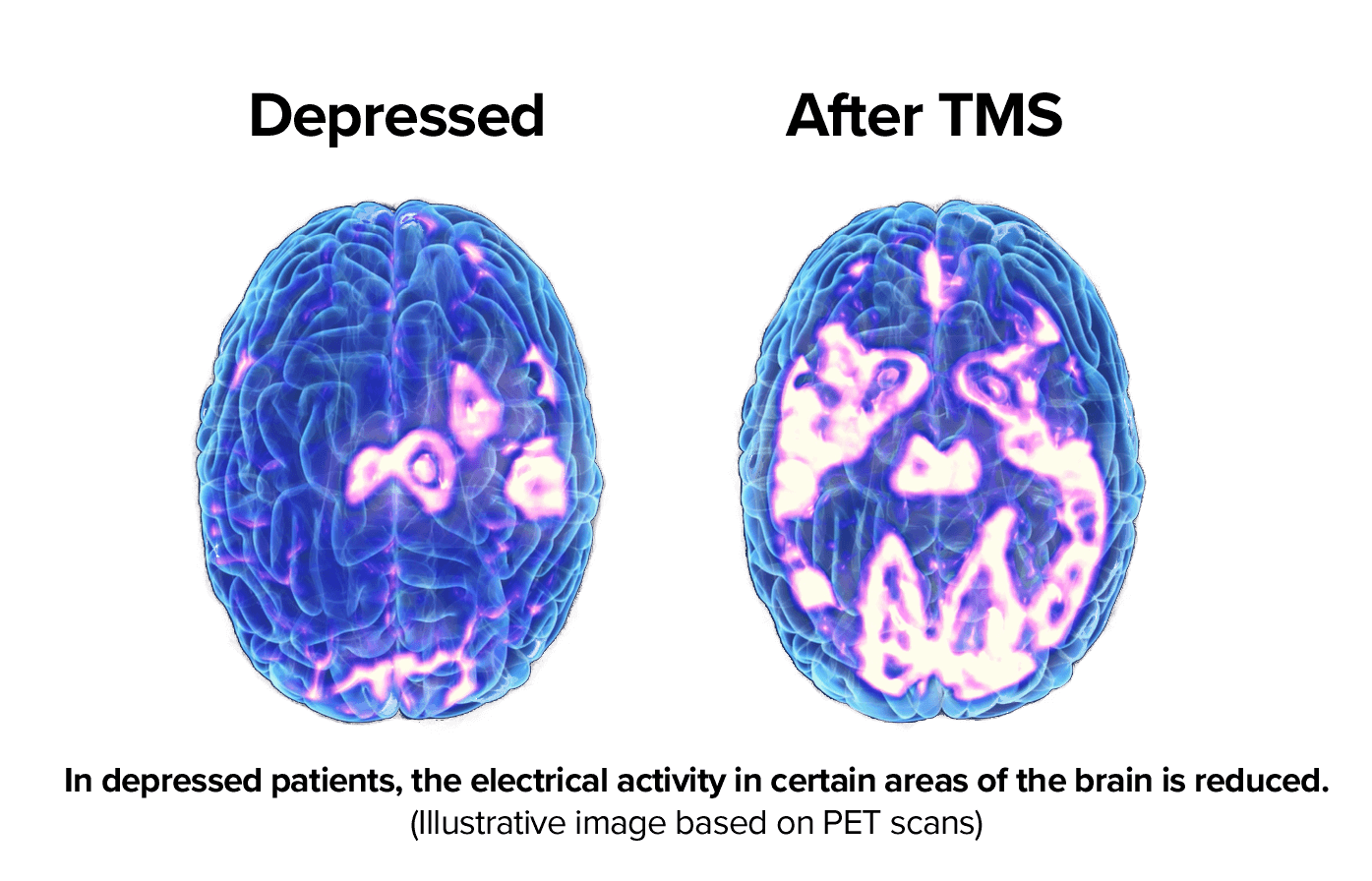
No Systemic Side Effects
While you may feel slight pressure on top of your head, most patients adapt to the sensation after just a couple of sessions.
Medication Free
Rest assured, you do not have to start a new medication regimen throughout TMS.
21 Day Difference
An analysis of 1,753 patients showed that the average patient achieved a sustained response after just 16 treatments.
Hear From Our Patients
Cory D.

"Dr. Ziegler listens takes what you say and gives you different options and also tells you if you want to stop in med that he'll help you with that too. My experience is very good and I'm very satisfied"
Krista D.
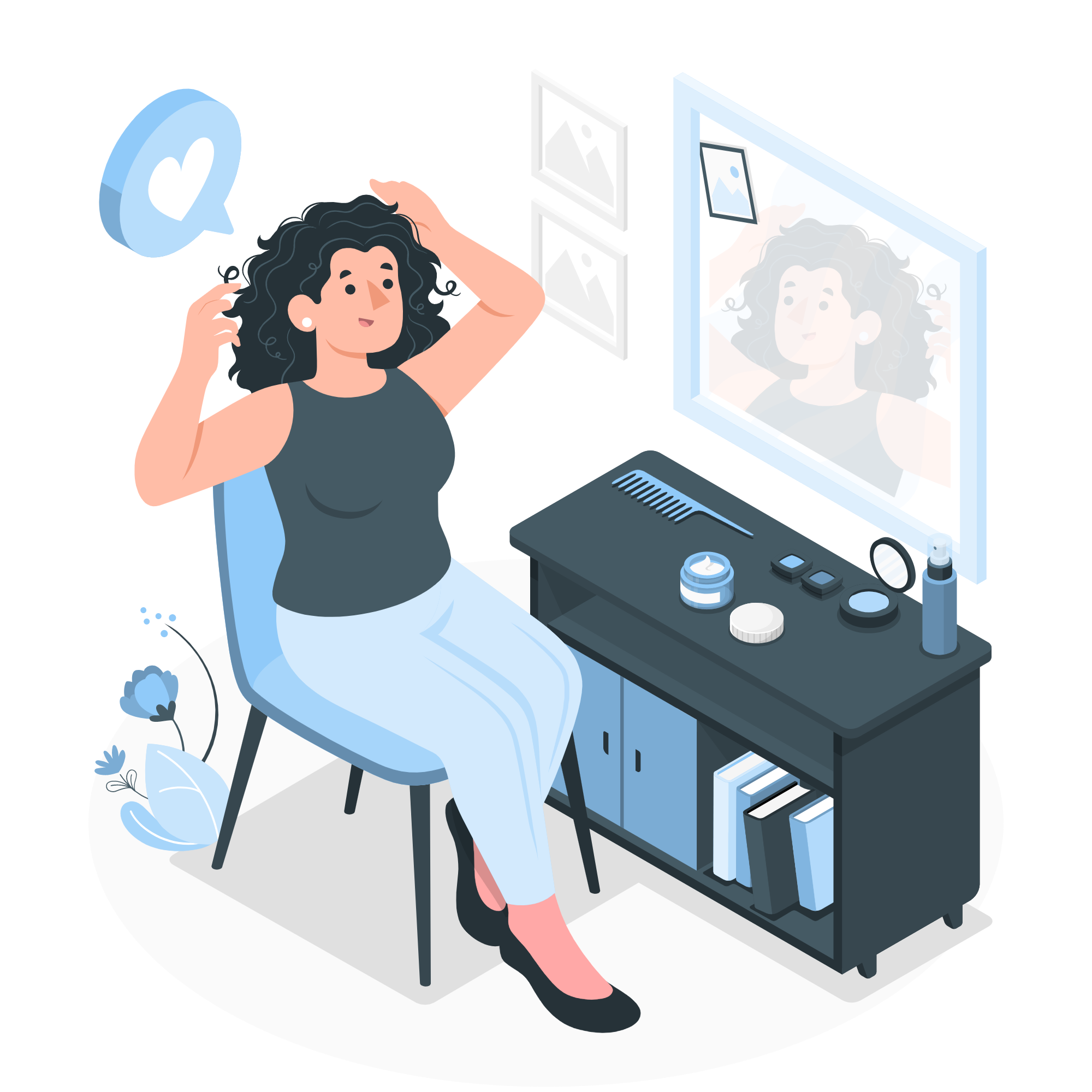
"Dr. Ziegler does a wonderful job helping me figure out what are the best meds for me so I don't have a mental breakdown while I'm trying to get everything figured out from weight loss to My mental health meds. He really truly cares about what is best for me and it takes really good care of me. I am thankful I have such a good doctor."
Krystal D.
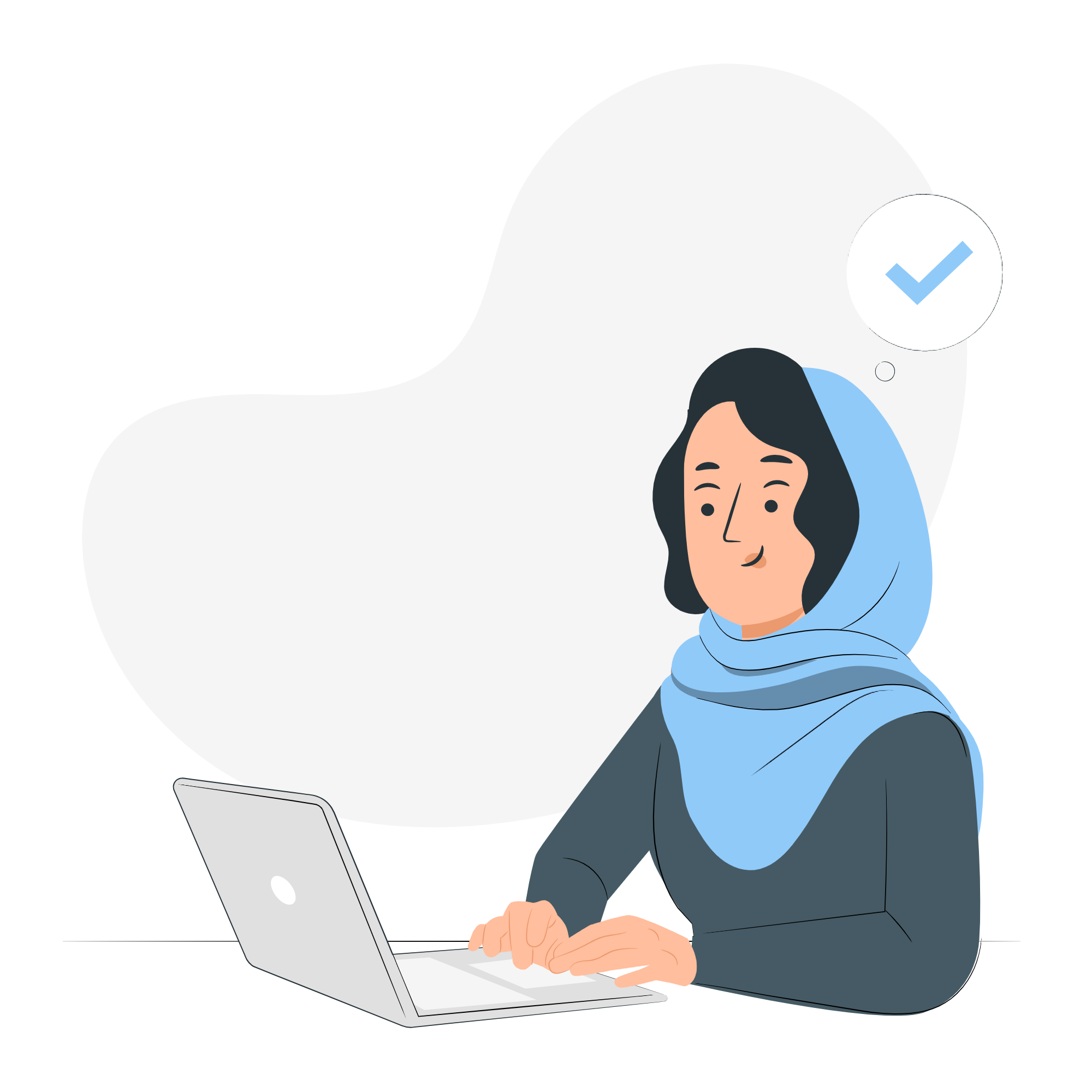
"Dr. Ziegler does amazing work handling my bipolar and skitzophrenia. I have been mentally and emotionally stable for 3 years with him. He listens, he cares, he doesn't judge, is supportive, and gets me the help that I need to live a stable normal life."
Real BrainsWay Stories
Highly Effective
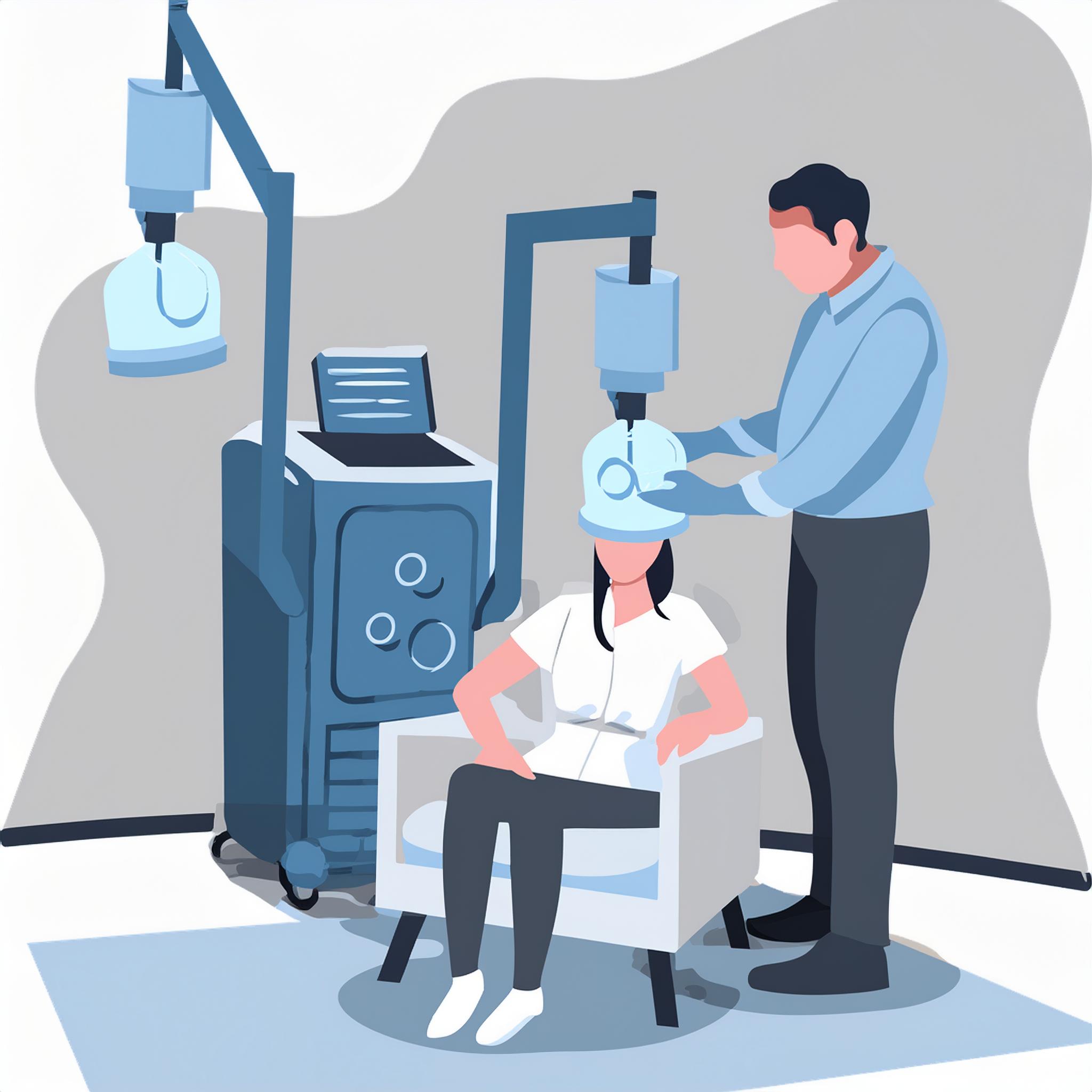
About 83% of patients who complete a full course of TMS show a clinically meaningful response and about 62% experience a full remission, meaning their symptoms go away completely
Fits in Your Schedule

Sessions are about 20 minutes and you can drive to and from your appointments. The full course covered by insurance usually takes about 6-8 weeks to complete.
Covered by Insurance
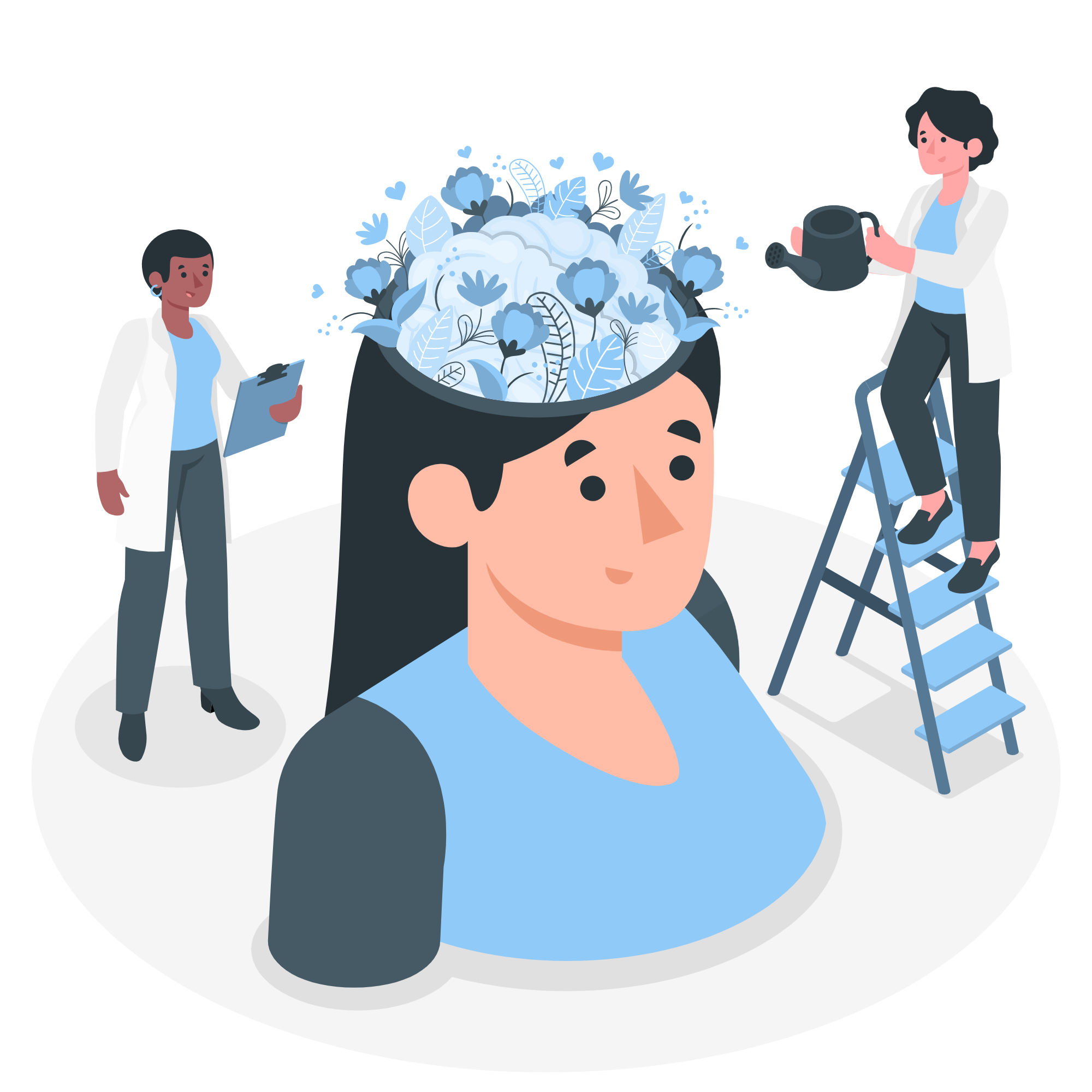
All major payers cover TMS treatment for Depression. If you've tried multiple antidepressants and therapy, there's a good chance your insurance covers it.
Meet Josiah Ziegler, DO

My philosophy of care is firmly rooted in the most current scientific research in psychiatry. Recognizing the complexity of mental health, I am dedicated to staying at the forefront of advancements in neurobiology, psychopharmacology, and evidence-based psychotherapies. This commitment allows me to offer treatments that are not only scientifically robust but also tailored to the unique needs of each individual I serve. By integrating these cutting-edge findings, I ensure that my patients receive the most effective and innovative care available, designed to support their mental health and overall well-being.
Equally important to me is the compassionate aspect of care. I believe that empathy, mutual respect, and understanding are the cornerstones of effective mental health treatment. I strive to create a therapeutic relationship where my patients feel safe, heard, and valued, recognizing that they are the true experts in their own experiences. This compassionate approach fosters trust and enhances the healing process, allowing us to work together toward meaningful and lasting outcomes. I view the treatment process as a collaborative partnership, involving patients in every step—from diagnosis to treatment planning and beyond. This collaborative model empowers my patients to take an active role in their recovery, leading to better outcomes and a higher quality of life.
Located in Fort Collins
We are In-Network with

Not Sure If You Need Help?
Get instant results and feedback by taking this short quiz.
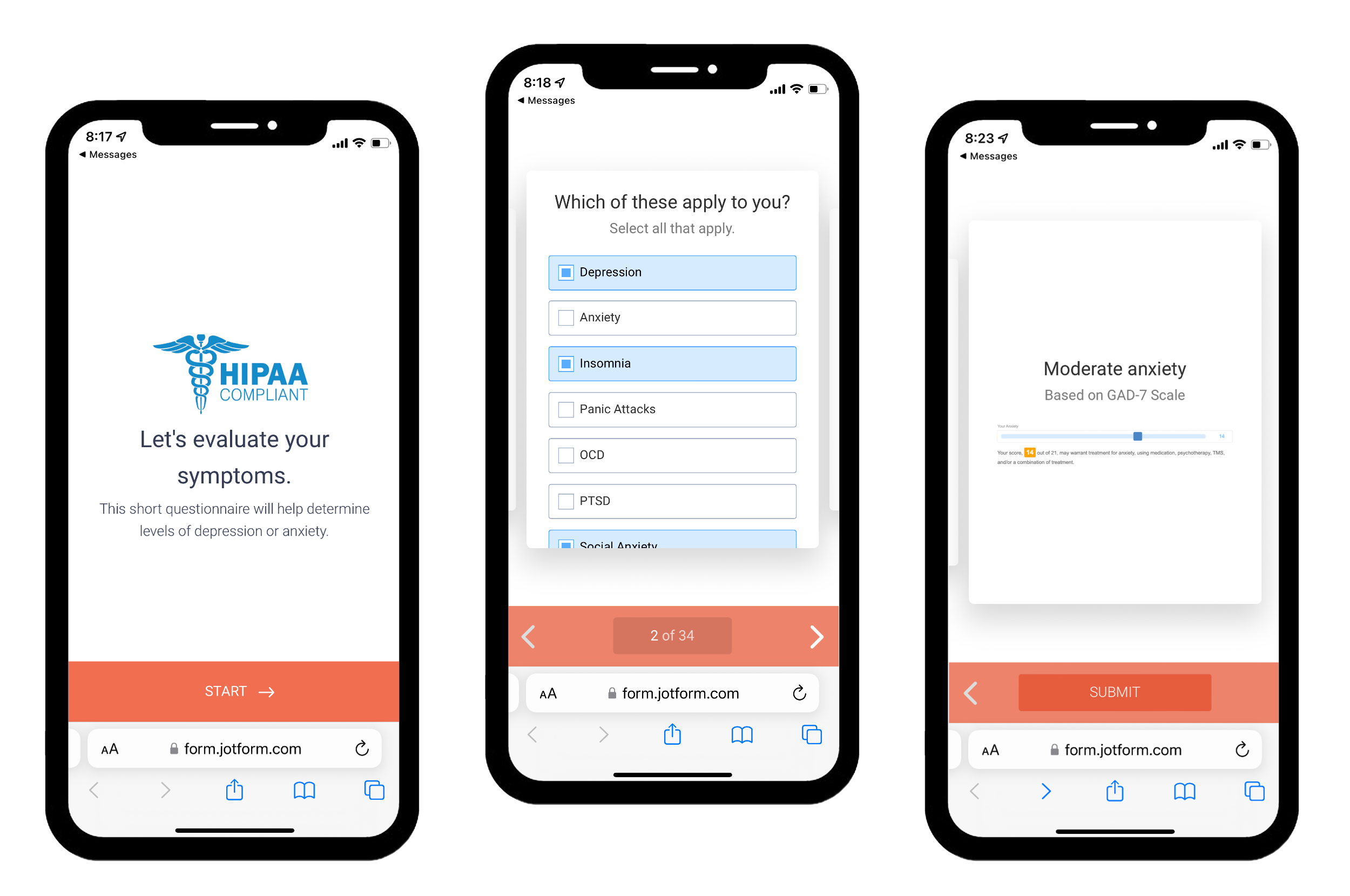
What is TMS?
TMS, or transcranial magnetic stimulation, is an alternative treatment for a variety of mental health conditions, but it is most commonly used to treat major depression and anxiety. This non-invasive therapy involves using a targeted magnetic field to stimulate under-active neurons in specific parts of the brain. TMS therapy typically takes about 6 weeks and is over 70% effective for providing long-term relief from depression symptoms.
How does TMS work?
Depression is caused by a lack of sufficient activity in the left dorsolateral prefrontal cortex, essentially the front left part of your brain. When this area is working properly, the entire brain lights up, creating an improved mood, working memory, and selective attention. TMS works by using magnetic fields to stimulate nerve cells in the brain. This is done by placing a magnetic coil near the head, which produces magnetic pulses that stimulate the nerve cells in the targeted area.
Is TMS for me?
TMS may be a good option for individuals who have not responded to traditional treatments for depression, such as medication and psychotherapy. However, it is important to speak with a mental health professional to determine if TMS is right for you.
What is TMS like? Do I feel anything?
During TMS treatment, you can sit comfortably and perform passive activities like reading a book, watching TV, or listening to music. Most patients report that TMS treatment feels like a gentle tapping sensation on the skull. Some patients experience a tingling or scalp sensitivity at the stimulation site during treatment, which can typically be mitigated by placing the device at a slightly different angle.
Are there any side effects?
The most commonly reported side effects of TMS therapy include mild headache, scalp discomfort during stimulation, and lightheadedness, all of which are typically resolved shortly after the treatment session or within the first week. Many patients report no side effects at all.
Is TMS covered by insurance?
Yes, TMS therapy is covered by almost all major insurance companies, depending on your insurance plan. Insurance plans can also have requirements for coverage, such as a prior history of antidepressant medication use or therapy treatments.
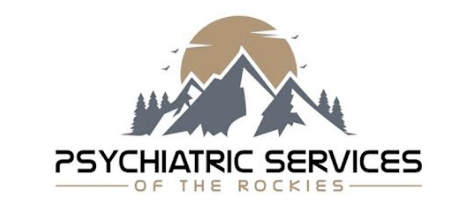
1124 E Elizabeth St Suite C, Fort Collins, CO 80524
(970) 436-4449
Ⓒ 2025 — www.psychiatricservicesoftherockies.com — All rights reserved
Business Hours
Mon: 9am - 6pm
Tues: 9am - 6pm
Wed: 9am - 6pm
Thurs: 9am - 6pm
Fri: 9am - 6pm
Sat/Sun: Closed

Ⓒ 2025 — www.psychiatricservicesoftherockies.com — All rights reserved

